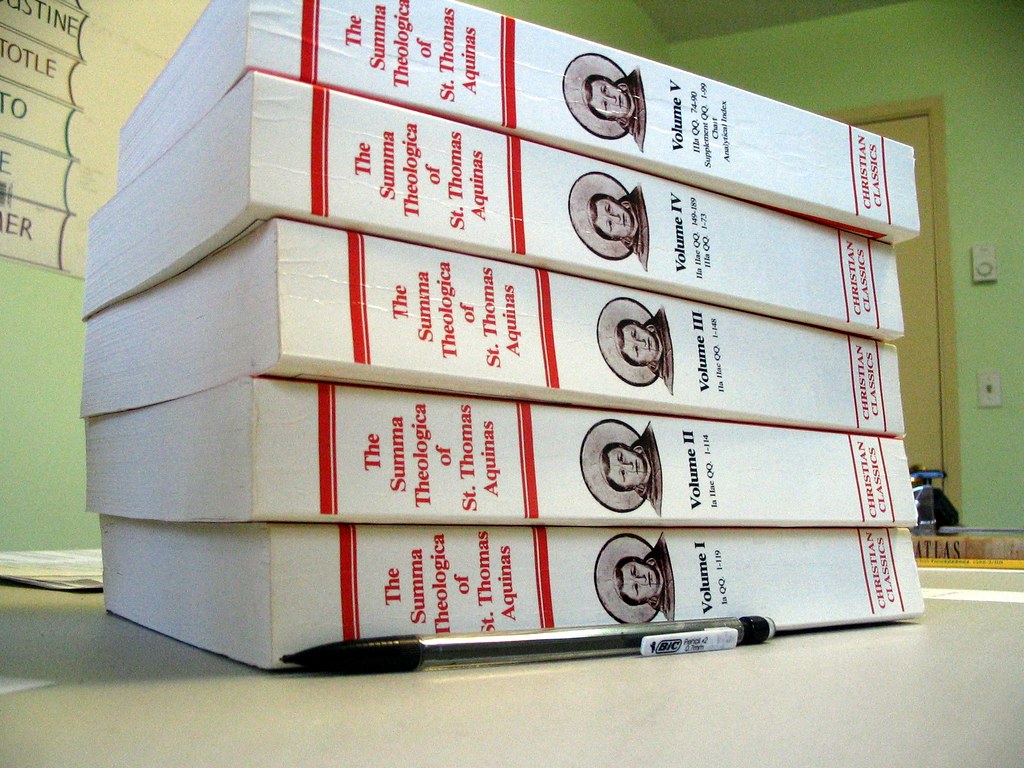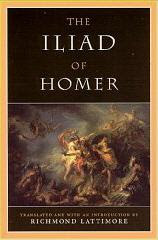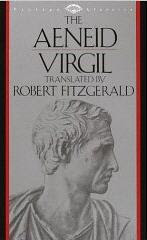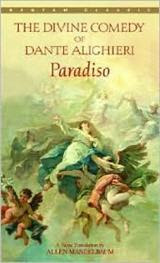Notes on Aristotle's "Categories"
It is perhaps hard to make firm statements on such questions without having examined them many times. Still, to have gone through the various difficulties is not unprofitable.If you've read Categories, I'd be curious to hear what you thought of it!
Notes on Aristotle's Categories
| 2. | said of a subject | not said of a subject |
| in a subject | e.g., knowledge (in the soul) | e.g., knowledge-of-grammar |
| not in a subject | secondary substances (i.e., species and genera) e.g., man | primary substances e.g., Jon |
- A ∍ A1 ⇒ name(A) ∍ A1, definition(A) ∍ A1
- b ← A1 ⇒ name(b) ∌ A1 [often], definition(b) ∌ A1
- If the primary substances did not exist, nothing else would exist
- Species is more a substance than genus
- Things are called synonymously from substances
- A primary substance is a "this"; a secondary substance is not
- Contrariety: No
- More/less? No
- Distinguished by ability to be described by opposing contraries at different times
- Differentia - Characteristics distinguishing species
- Examples: footed, two-footed
- D ∍ S ⇒ definition(D) ∍ S
- Things are called synonymously from them
- Kinds
- Discrete, e.g., number, language
- Continuous. e.g., lines, surfaces, bodies, time, place
- Composed of parts with spatial positions, e.g, parts of a line, parts of a plane, parts of a solid, parts of a place
- Composed of parts without spatial positions, e.g., number, time, language
- Derivative quantities, e.g., large amount of white (surface), long action (time)
- Contrariety: No
- More/less: No
- Distinguished by equality and inequality
- Kinds
- state, e.g., virtue, vice, slave, master, larger, smaller, double, half
- condition
- perception, e.g., perception, perceptible
- knowledge, e.g., knowledge, knowable
- position, e.g., lying, standing, sitting
- Contrariety: In some cases
- More/less: Yes
- Correlatives reciprocate
- Properly given correlatives describe only the relationship
- In most cases, correlatives are simultaneous in nature
- Substances are not relatives
- Kinds
- State – Durable characteristic that is subject to change, e.g., knowledge, justice, temperance. Subset of condition.
- Condition – Characteristic that is subject to change (typically short lived), e.g., hotness, chill, sickness, health
- Natural capacity/incapacity – Innate characteristic, e.g., boxer, runner, healthy, sickly, hard, soft
- Affective quality – Characteristic that affects something (e.g., the senses), or is effected by something durable, e.g., madness, irascibility, sweetness, bitterness, sourness, hotness, coldness, paleness, darkness
- Affection – 1. Characteristic that is effected by something short lived. Not considered a quality, e.g., bad tempered in time of distress, reddening through shame, paling in fright. 2. The affecting of one thing by another.
- Shape – The external form, e.g., triangle, square, straight, curved
- More/less? No
- Qualification – Noun form of quality (adjective), e.g., justice, injustice, whiteness, blackness, redness, yellowness.
- Contrariety? In some cases
- More/less? In some cases
- Distinguished by being the basis on which things are said to be similar
- Contrariety? Yes
- More/less? Yes
- Relatives
- Spoken as "the a of the b"
- e.g., double and half
- Contraries
- If the presence of either contrary is (is not) required of all subjects, then intermediates do not (do) exist.
- e.g., good and bad, sickness and health, odd and even, just and unjust, black and white, hot and cold, excess and deficiency.
- The opposite of a bad contrary is good in most cases, but not all
- One contrary may exist without the other
- ∀ genus or species to which a contrary belongs, the other contrary will belong also
- Contraries must be genera, in opposite genera, or in the same genus
- Privation and possession.
- Applicable when possession is normative.
- e.g., blindness and sight, toothlessness and toothedness, hairiness and baldness.
- Affirmation and negation.
- Distinguished by one being true and the other false.
- e.g., Socrates is sitting and Socrates is not sitting, Socrates is sick and Socrates is not sick
- In time. e.g., younger, older
- In unidirectional correlation: one, two
- In order: demonstrative sciences, grammar, speeches
- In priority: friends, strangers
- In bidirectional correlation: existence of a man, the statement "the man exists"
- Simultaneous – created at the same time.
- Simultaneous by nature – noncausal bidirectional correlation, e.g, double and half, coordinate species of the same genus
- Generation
- Destruction
- Increase
- Diminution
- Alteration
- Change of place
- A quality, e.g., knowledge, virtue
- A quantity, e.g., a height of 5'
- A thing on the body (e.g., cloak, tunic, armour) or on a part (e.g., ring, shoes)
- In a container, e.g., measure of wheat, jar of wine
- A spouse, e.g., husband, wife
- A possession, e.g., house, field





































